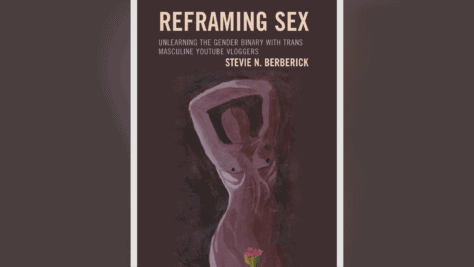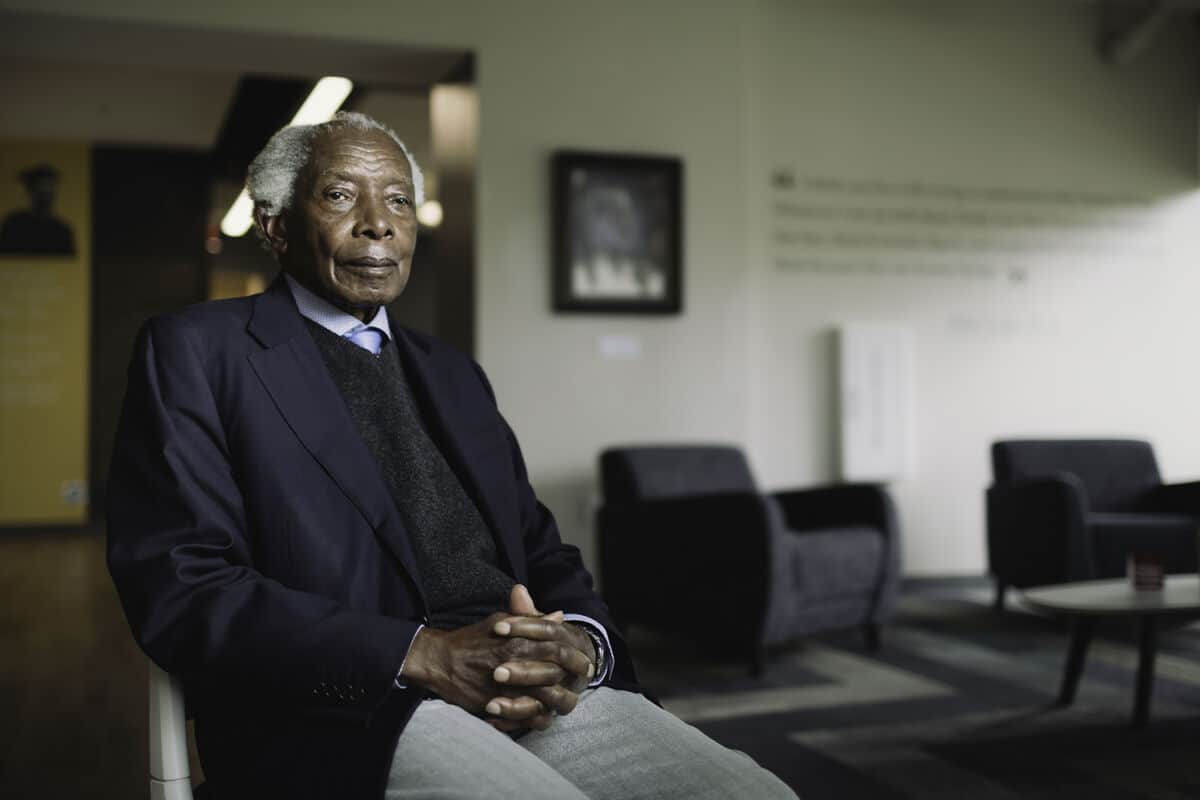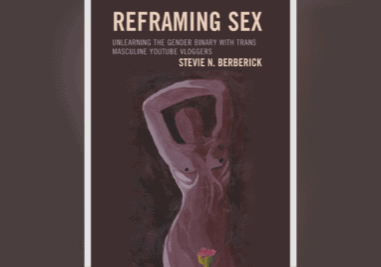Professor Stevie Berberick, Ph.D. wants to do some “unteaching.” With their new book, “Reframing Sex: Unlearning the Gender Binary with Trans Masculine YouTube Vloggers,” the Washington & Jefferson College assistant professor of Communication Arts provides new and needed perspective on the way gender identity is portrayed in mainstream and independent media.
The book, due from Lexington Books on Nov. 15, explores three transmasculine-run YouTube channels alongside the streaming productions The Chilling Adventures of Sabrina, Orange is the New Black, and Transparent.
Berberick, who has long studied gender representation in the media, was inspired to write the book because they noticed a continuing lack of healthy or complete representations of transgender identity on screen.
“Transgender is such a beautiful and vibrant term that encompasses so many different forms of embodiment,” they said. “But what we’re seeing in the media is mainly a representation of transfemininity that’s really high-femme, which is awesome but also incomplete. One of the biggest shortcomings is that we don’t see transmasculinities on screen.”
Berberick also said that often, transgender narratives in the media make gender the primary talking point and fail to represent trans people as three-dimensional characters with goals, hobbies, shortcomings or other traits. The lack of well-rounded and realistic characters is problematic, but misrepresentations of transgender people can also cause real damage, both in society and to individual people.
Berberick noted that transgender people are often portrayed in the media as degenerative characters, such as drug addicts, which is not true to reality and only serves to increase fear, misunderstanding, and stigmatization. Homicides and violence against trans people rises every year, they said, and transgender women of color are the most vulnerable.
“If we don’t understand the systemic discriminations against transgender folx then we can have this illusion of progress that keeps us complacent,” they said. “I feel that if people knew, then we would see more action against transphobia, but you can’t change what you don’t know.”
A big part of Berberick’s theoretical work is to try to explain how sexual identity is grossly misunderstood and how, as a society, people confuse sex and gender.
“I don’t think that’s anyone’s fault, I think it’s just how we deal with this culturally and we need to unlearn it,” they said. “I hope we can unlearn the binary sexual identity that is prevalent in our culture.” Berberick also hopes a side-by-side comparison of media types will help readers think about what it means to critically consume media. “Culturally, we’re not as critical of all forms of media as we need to be, and I think this is a very large issue that comes from many directions,” they said.
Berberick, who is the Safe Zone training facilitator at W&J, regularly engages these topics into their classes and that the discussions resonate personally with their students. Active unlearning is difficult, but Berberick said their students are eager to learn and unlearn, and have a personal mission to challenge themselves.
“We all have holes in our knowledge, and we need to find a way to deconstruct that, unlearn that, and expand our world views. It’s not just so we have more intelligence, but because when we see human beings as human beings and not a one-dimensional token, that’s when our empathy grows. That’s when our desire to have stronger relationships and community grows. We can’t have that kind of action toward a better world if we don’t recognize that the people suffering are indeed people.
“Reframing Sex: Unlearning the Gender Binary with Trans Masculine YouTube Vloggers” will be available Nov. 15 through Roman Littlefield, Amazon, Google Books, and a number of international booksellers.
















